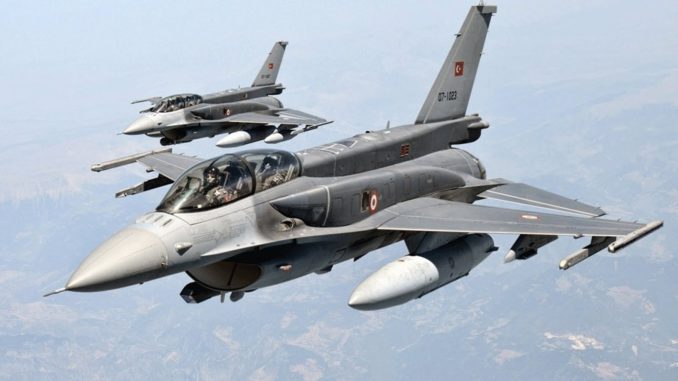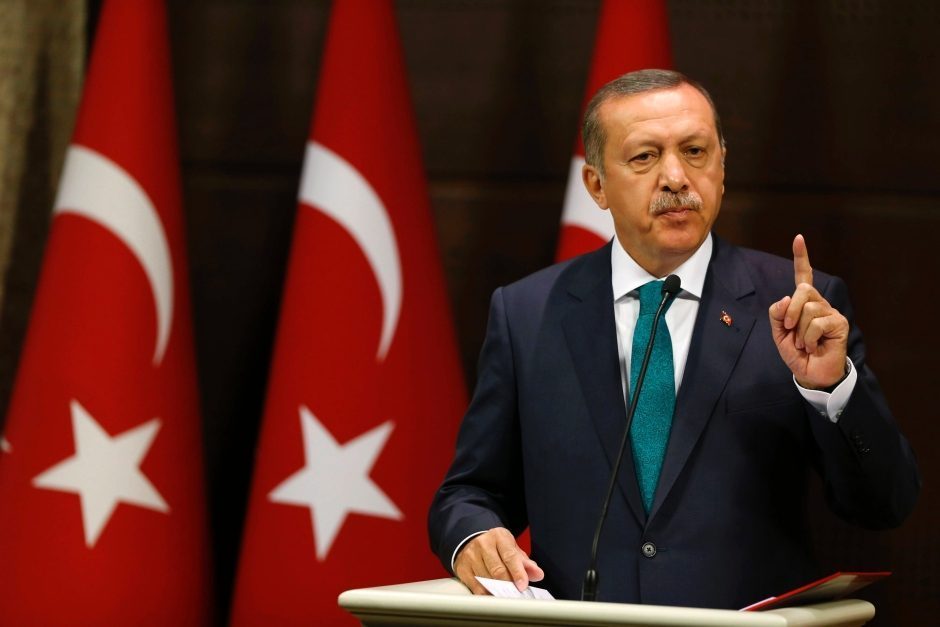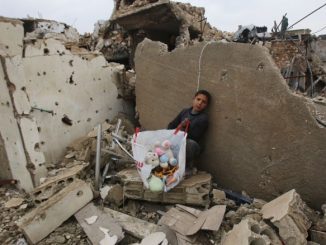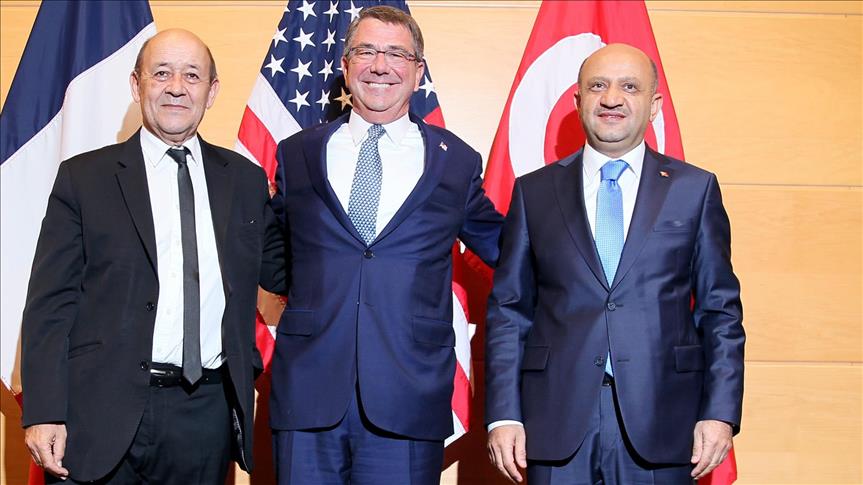
Turkish military carried out air strikes against Kurdistan Workers’ Party fighters in Iraq’s Sinjar region and northeast Syria on Tuesday, killing at least 70 people, according to a Turkish military statement.
Turkey’s military operation in Syria named Euphrates Shield was launched in August 2016 to drive Islamic State militants from its border and prevent Kurdish fighters from gaining ground and strengthening their positions. This operation has changed the balance of power in northern Syria and added more tension to the already complicated area.
The Syrian rebels, backed by Turkey, have managed to retake the ISIS stronghold of Jarabulus, alongside with al-Rai to the west and Dabiq city. Finally, they were able to force control on al-Bab on February 23 after months of siege and clashes.
At the same time, the Syrian Democratic Forces (SDF) alliance, which is dominated by the Kurdish YPG militia, is supported by the US as the latter uses them in its war against ISIS.
Turkey sees the YPG as an extension of Kurdish PKK militants who have waged a three-decade insurgency in southeastern Turkey.
Air strikes carried out by the US-led coalition and a long fight by the SDF forces ended in recapturing Manbij from the control of the Islamic State (ISIS) group last year.
Turkey had plans to complete further to take back Manbij and move towards Raqqa, which the US opposed.
However, the Turkish National Security Council (NSC) declared surprisingly in March ending the Euphrates Shield operation saying that it has achieved its goals without revealing further information.
“It was noted that the Operation ‘Euphrates Shield’ which was started with the goal of ensuring national security, preventing the threat from ISIS and return of Syrian refugees to their homes has successfully completed,” the NSC said in a statement.
Turkish military bombs Kurdish militias
A statement released by Turkey’s air force said that it carried out the air strikes against PKK targets located in the Sinjar Mountains region in northern Iraq and in Karachok Mountains in northeastern Syria on Tuesday.
The targets were hit to prevent the PKK from sending “terrorists, arms, ammunition and explosives to Turkey,” the statement said, adding that the operation was conducted “within the scope of the international law”.
“At least six people were killed, five from the Peshmerga and a sixth from Asayish [Rojava],” Lieutenant-General Jabbar Yawar, secretary-general of the Ministry of Peshmerga Affairs in Iraq’s autonomous Kurdish government, told AFP news agency.
The UK-based Syrian Observatory for Human Rights, a monitoring group which tracks the Syrian war, said that at least 18 YPG fighters were killed in the air strikes in Syria’s Hasaka province.
The YPG in northern Syria said on its Twitter account that Turkish warplanes targeted the headquarters of the General Command of the YPG in Mount Karachok, near the city of Derik in Hasaka.
The YPG also reported that a media center, a local radio station, communication headquarters and some military institutions were hit.
“As a result of the barbaric strikes by the Turkish warplanes at dawn today against the YPG center … 20 fighters were martyred and 18 others wounded, three of them critically,” said spokesman Redur Xelil.
Ilham Ahmed, a senior Kurdish politician who co-chairs the political wing of the SDF, said they wanted the United States to provide aerial protection against Turkey.
The PKK are Kurdish fighters operating in Turkey, while the Rojava Defence Units (YPG) are Kurdish fighters operating in northern Syria and the Peshmerga fighters are in charge of security in Iraqi Kurdistan.
Turkey’s President Recep Tayyip Erdogan said the US and Russia were informed of the attacks, but the US State Department said it was deeply concerned by the air strikes, which it said were not authorized by the US-led coalition fighting ISIS in Iraq and Syria.
“We have expressed those concerns with the government of Turkey directly,” State Department spokesman Mark Toner told reporters.
“These air strikes were not approved by the coalition and led to the unfortunate loss of life of our partner forces.”
Toner said the strikes hurt the coalition’s efforts to go after the militants. “We recognize their concerns about the PKK, but these kinds of actions frankly harm the coalition’s efforts to go after ISIS and frankly harm our partners on the ground who are conducting that fight.”
Tension in Iraq
Five members of Iraqi Kurdish peshmerga forces, which are also deployed in Sinjar, were killed, and nine wounded in one of the Turkish air strikes, according to the peshmerga ministry, apparently by accident.
It called the attack “unacceptable” but blamed the PKK for being there and demanded the group withdraw from Sinjar.
Following the attacks, the Ministry of Peshmerga Affairs called upon the PKK to “withdraw from Sinjar Mountain and surrounding areas”.
“This painful and unacceptable attack on Peshmerga forces by Turkish warplanes is a result of PKK’s presence in and around Sinjar,” the ministry said in a statement.
“PKK has been problematic for the people of the Kurdistan Region and, despite broad calls to withdraw, refuses to leave Sinjar. PKK must stop destabilizing and escalating tensions in the area to allow life to return to the people of the area.”
Turkey has regularly bombed the mountainous border area between Iraq and Turkey where PKK militants are based since a ceasefire broke down in July 2015. But Tuesday’s raid was the first time Turkish forces have targeted its affiliate in the northwestern Sinjar area.
The PKK established a presence in Iraq’s Sinjar after coming to help the region’s Yazidi population when ISIS overran the area in the summer of 2014.
Turkey sent tanks into the town of Bashiqa in northern Iraq in 2015, saying it was providing military assistance and training for the Peshmerga fighters battling ISIS.
Turkish President Tayyip Erdogan has said he will not allow Sinjar, around 115 km (70 miles) from the Turkish border, to become a “new Qandil”, referring to a PKK stronghold in Iraq near the borders with Turkey and Iran.
The presence of a PKK affiliate in Sinjar is also rejected by Kurdish authorities who run their own autonomous region in northern Iraq and enjoy good relations with Turkey.



